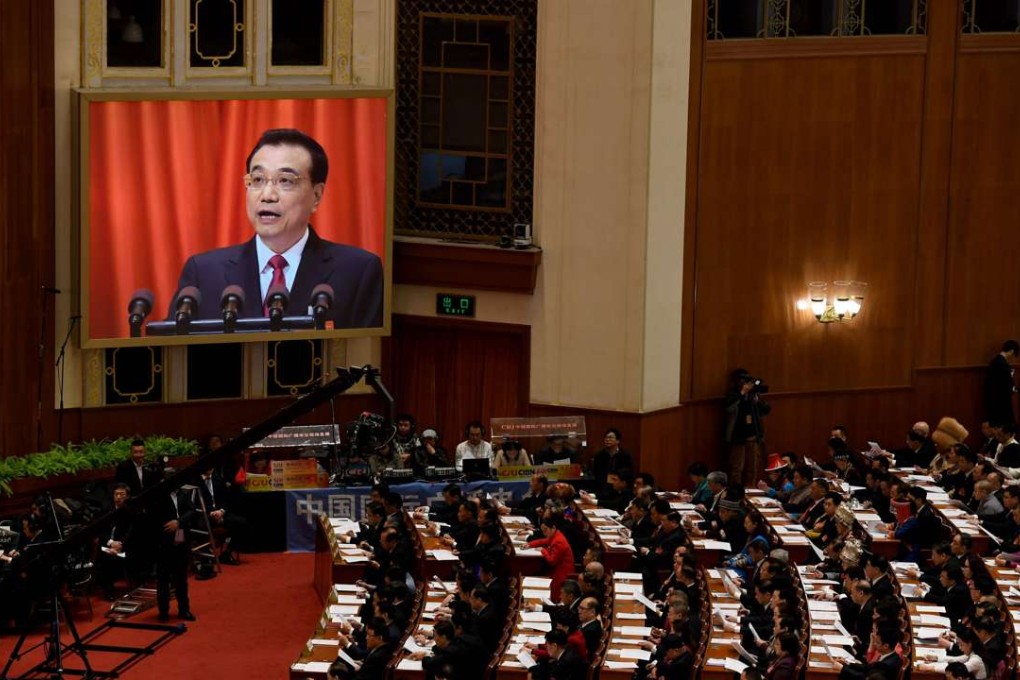Growth, defence and bringing back blue skies: what Li Keqiang said in his annual work report

China faces “far more complicated and graver situations” both at home and abroad as it steps up economic development and seeks to play a greater international role, Premier Li Keqiang said in his annual report on Sunday.
In his speech delivered at the opening of the annual meeting of the National People’s Congress in Beijing, Li spoke about a wide range of issues including border control and defence, China’s economic goals, the role of the Chinese currency, calls for Hong Kong independence, as well as Taiwan.
Defence
Li’s report pledged to strengthen maritime and air defences as well as border controls amid efforts to safeguard sovereignty and security.
It also highlighted the importance of innovation in defence-related science as Beijing aggressively steps up its military hardware capability.
For the first time, the public version of an annual budget released by the Ministry of Finance at the same time as Li’s report did not mention the defence budget, although a spokesman said on Saturday that the budget would be 7 per cent. Delegates said they were told about the military spending in a more detailed version given to them.
Beijing would continue to deepen military reforms while upholding the party’s absolute leadership of over the armed forces, the report said.